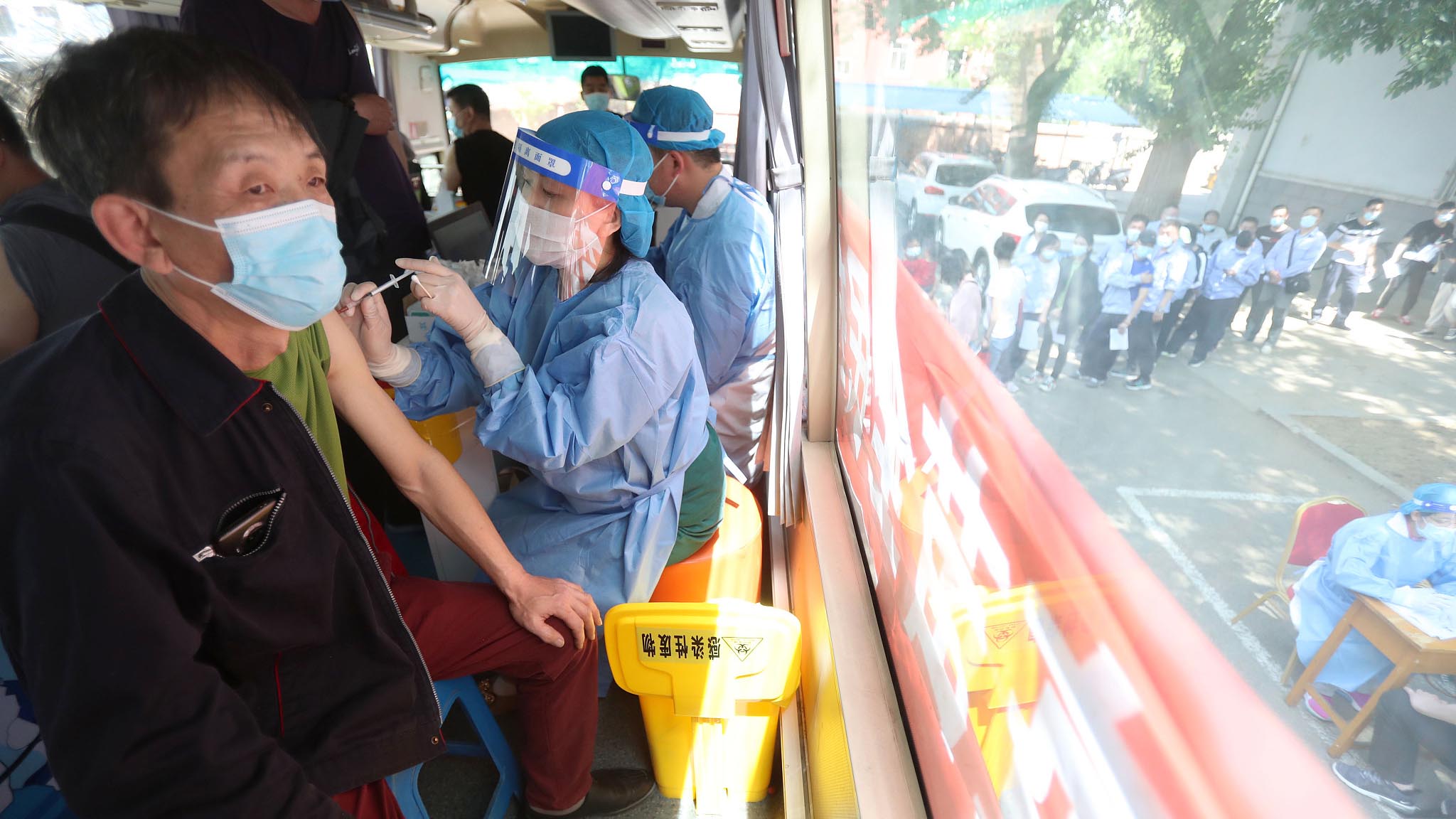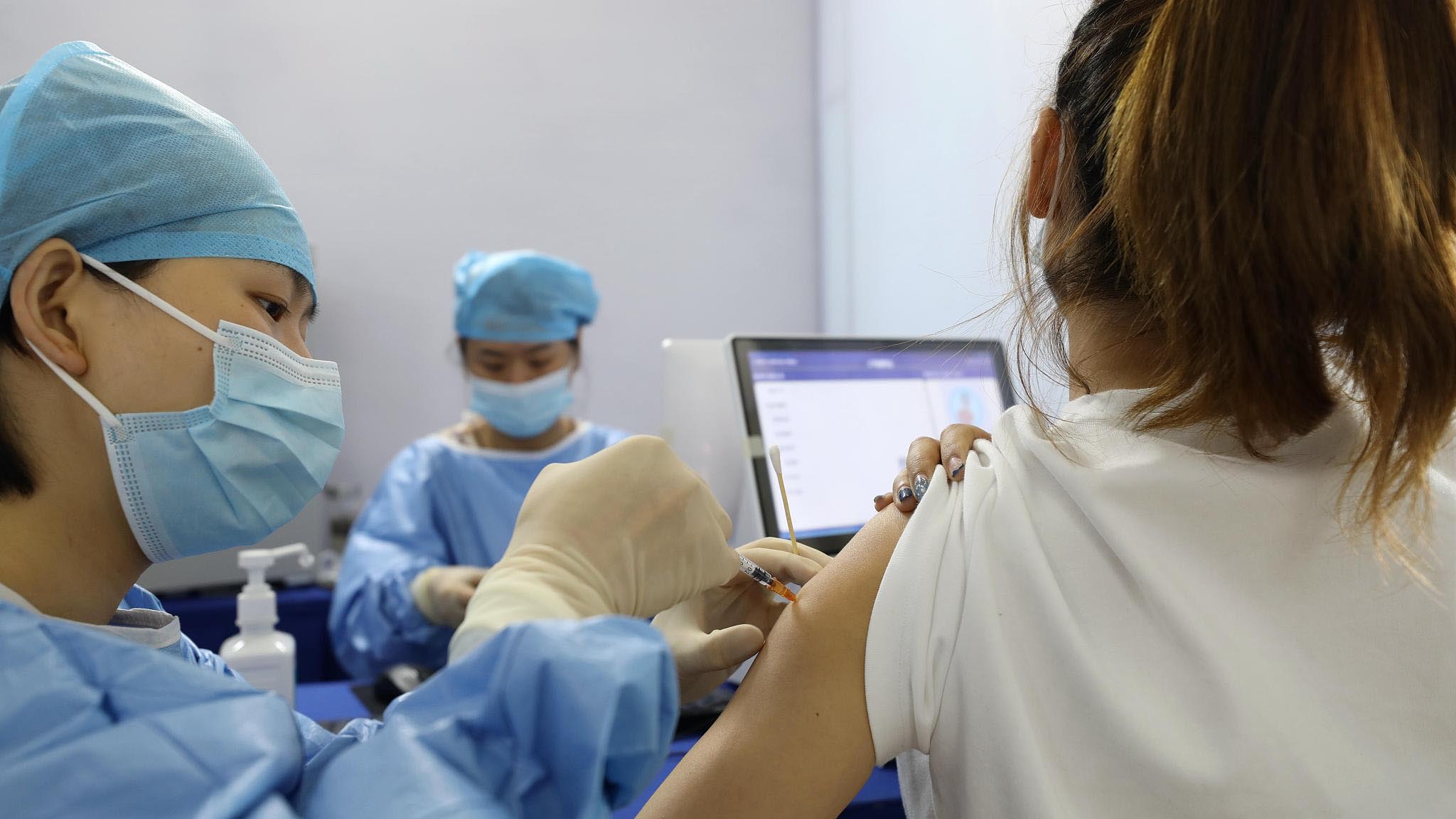02:54

The WHO-initiated Independent Panel for Pandemic Preparedness and Response has condemned world governments' response to the COVID-19 pandemic on Wednesday. The panel said a series of bad decisions allowed the virus to kill at least 3.3 million people so far and devastate the global economy. Zhong Nanshan is one of the 13 members from different countries on the panel.
Independent panel report objective, impartial
"The report is not only aiming at the governments but also related to the member states, stakeholders, United Nations agencies such as WHO, World Bank, and so on," said Zhong in an exclusive interview with CGTN. "The report has a comprehensive description in terms of 'what happened, what we've learned and what needs to change,' recommending a fully effective preparedness and response at hand when the next pandemic happens."
"As a whole, the report is based on evidence of science. It is objective, impartial, focusing on the future actions," he said.
The report commends a few countries such as New Zealand, South Korea, Singapore, as well as China, in their containment measures. The report had mentioned some countries had adopted an "aggressive containment strategy," that included physical distancing, testing, mask wearing and hand hygiene at the individual level, and testing surveillance, contact-tracing, quarantine, isolation and effective communication with transparency at the community level.
"This strategy had led to a successful containment of the COVID-19 pandemic. I think it's the conclusion of a few countries, and China is on that list," Zhong said.
The independent panel has 13 members. The two co-chairs are two ladies, one from New Zealand and the other one from Liberia. Other members are from Colombia, Tunisia, the U.S., France, Canada, South Africa, the UK, Saudi Arabia, India, Mexico and China.
"I think those experts had different experiences, both practical and theoretical, in terms of administration and hygiene and public health, and some infectious diseases like the Ebola and HIV. All the experts, I have learned a lot from them. They have contributed a lot to the report," Zhong said.
China in urgent need of mass vaccinations
Zhong said he's not surprised about the sporadic resurgence of COVID-19 epidemic in China. He said some countries have reopened too early.
"The COVID-19 pandemic is far from reaching the end, because there is a big gap between strict containment and the establishment of herd immunity. We need to be very much aware on the rebound in some countries. Actually, in some countries it's actually happened. The policy decision makers, they reopened the society and economy too early, so called 'jump the gun,'" Zhong said.
"Before the herd immunity is reached, a strict community interagency, namely wearing masks, distancing, hand washing, isolation of infected patients, and tracing contact, should be continuing," he stressed.
04:58

At least 80% of population should be vaccinated
He also said that there's an urgent need for more Chinese people to get vaccinated.
"If the protective rate of vaccine is 70 percent, at least 80 percent of the population should receive vaccination to reach a herd immunity. If the protection rate is 80 percent, at least 70 percent of the population should receive vaccination. The earlier a massive vaccination is given, the less the mutation happens," said Zhong.
Zhong Nanshan recommends seniors get vaccinated
Zhong is in his mid-80s and got the jab last week.
"It's China-made. I didn't have any uncomfortableness after the vaccination. Based on recent data, there are several hundred thousand people older than 60 that have received this vaccine. Owing to the susceptibility of elder people to be infected by COVID-19, I recommend elder people receive vaccination earlier," he said.
China's health authorities have expanded the vaccination interval between two shots from two weeks minimum to three weeks minimum, and no longer than eight weeks. "I don't think there's a very strict comparison in between the interval, for homemade vaccines, take the second dose not longer than eight weeks," Zhong recommended.
Long-term co-existence with COVID-19 possible
Zhong thinks coexisting with COVID-19 might become the norm.
"If the impact of health by COVID-19 is going less over time, long-term co-existence with COVID-19 with humans will be possible; if the protective rate of the vaccine is no longer one year – vaccination should be given every year – that's all possible, similar to the prevention of influenza," he explained.
"In particular, the mutation of this virus developed in some of the countries. We only can go and see what happens. But I suppose the coexistence with COVID-19 may be possible in the long run," Zhong said.
As for whether people need to get vaccinated every year, Zhong said he doesn't know and said it remains uncertain how long the vaccines can remain effective. "Actually, nobody knows up to now," Zhong said.

